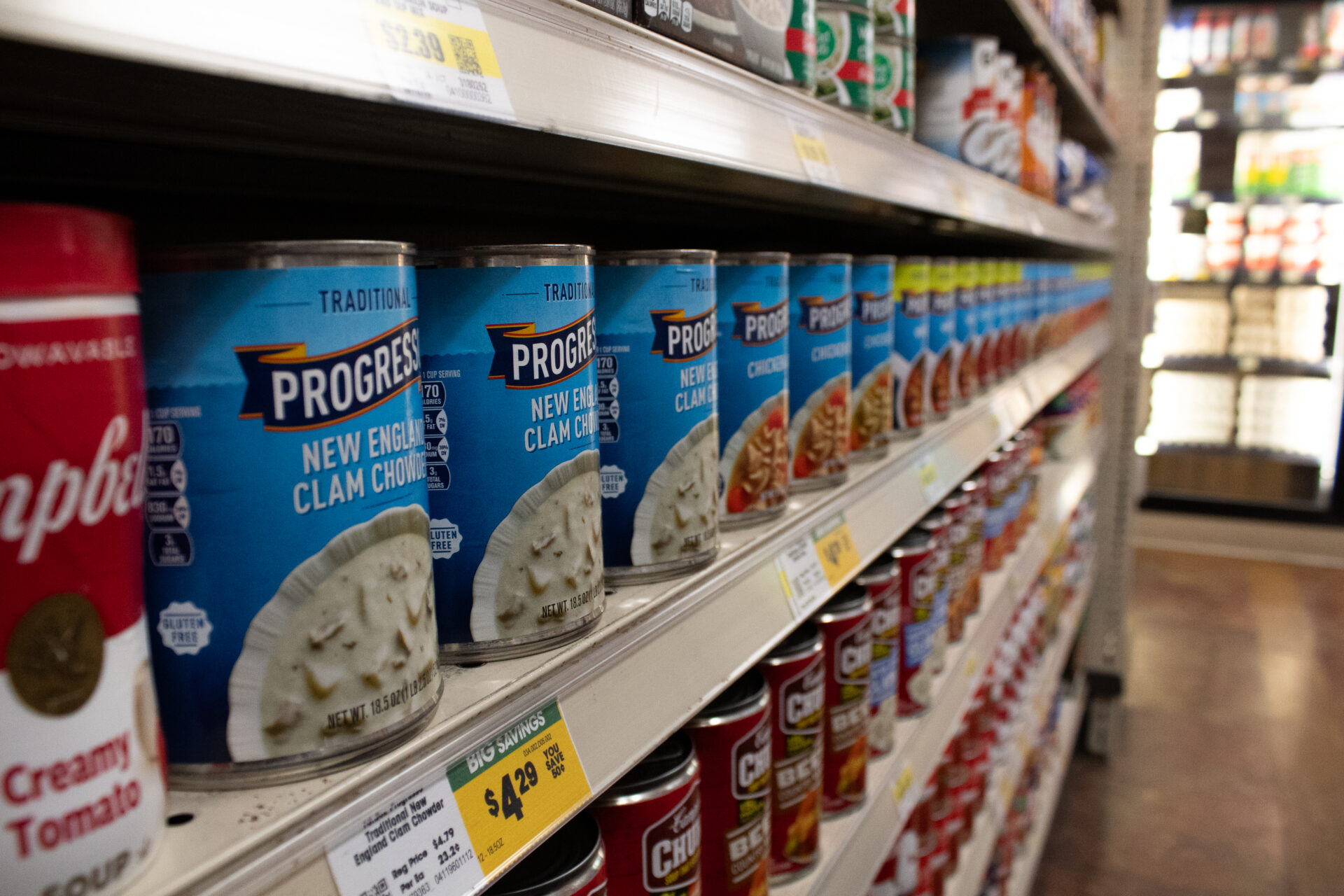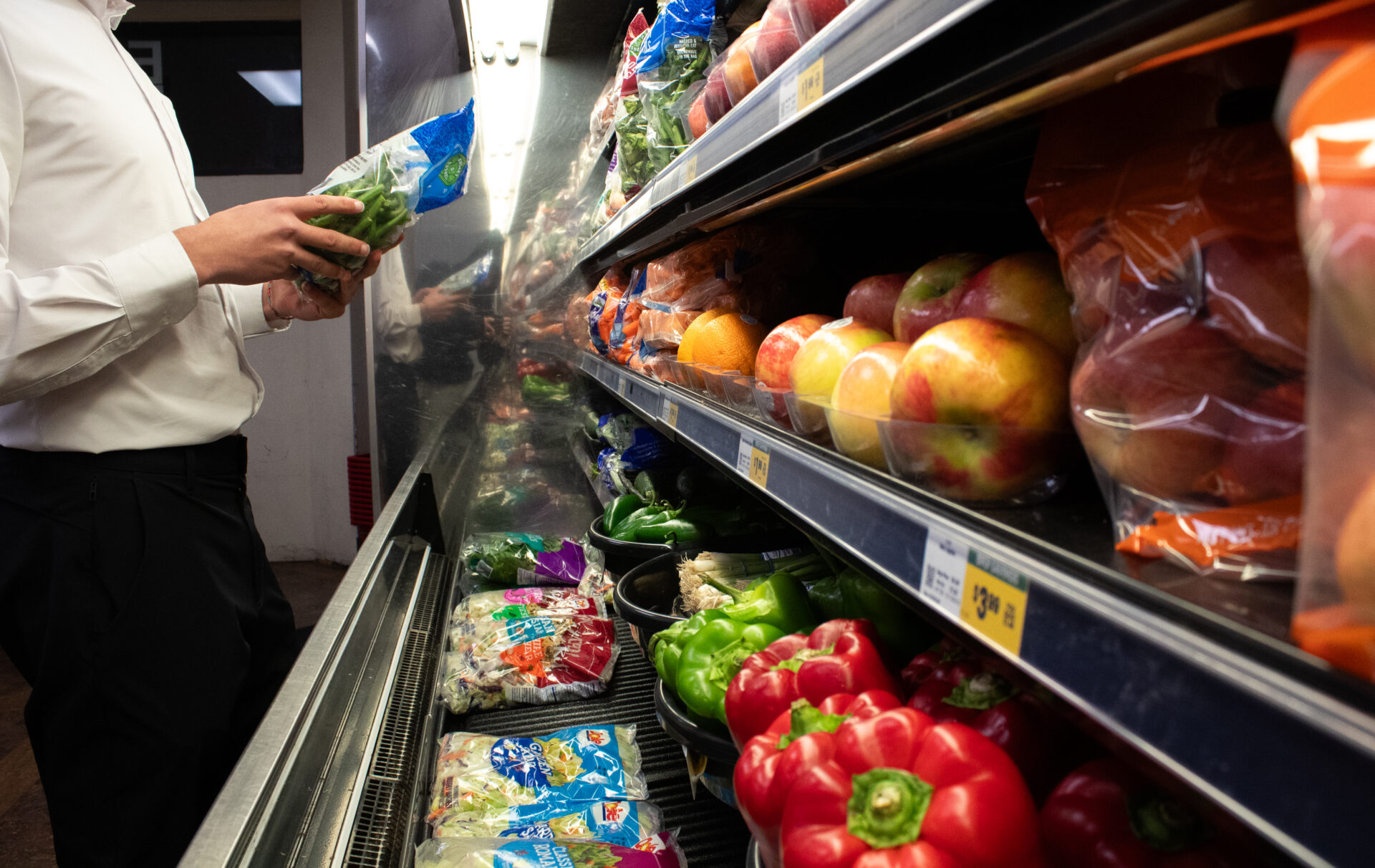
College students may find the transition from living at home where food is provided for them to living on their own difficult, but BYU provides many resources to guide their dietary health.
Many incoming freshmen may be used to eating dinner at home with their families and are not accustomed to preparing meals for themselves as they enter their college years.
Dallin Anderson, a psychology major from Salt Lake City, said he grew up eating what his mom made, so eating healthy at college has been a challenge for him.
“It’s hard to have the time and motivation to eat healthy and to eat enough,” Anderson said.
Anderson said learning to meal prep would help him decrease the demand on himself and his time to think of what to eat each day.
Teagan DeGarmo, a 21-year-old exercise science major from Napa, California, thinks of himself as a relatively healthy student and regularly meal preps.
“I do chicken and rice and then I’ll switch it up the next week or two and do like beef and pasta,” DeGarmo said. “So I eat a lot of protein, I just need more fruits and vegetables.”
DeGarmo said his meal-prepping efforts save him time, but they could be healthier. He has been meal prepping since his freshman year when he learned how to plan out his meals.
“I’ve seen a progression in terms of eating out less, making stuff at home more,” DeGarmo said.
With just a little more health conscious planning, his diet could easily include fruits and vegetables, he admitted.
“If I buy them I eat them, that’s the thing. But when I’m at the grocery store I’m always just like: Protein! Protein! Protein!” DeGarmo said.

BYU has multiple resources on campus to promote wellness among students and guide them in their health journeys. Resources include spiritual, physical, intellectual, financial, emotional and social areas of support.
Physical health coaching can be found through Student Wellness programs as well as through Women’s Services and Resources.
According to the WSR website, personal consultations provide information and direction on topics including “emotional eating, healthy weight loss, nutrition for exercising, grocery shopping on a budget, meal planning, incorporating a well-balanced diet into a busy schedule, how to have a more active lifestyle, and sleep recommendations.”
Kinsey Watson, a nutrition consultant in the WSR, is a senior in the dietetics program. The students she consults are often overwhelmed with the idea of meal planning, and many of them are freshmen.
“I think students have this idea where if they’re going to meal plan it has to be perfect,” Watson said. “Trying to be realistic and set realistic goals with students is probably something I do the most.”
Watson said meal planning doesn’t have to mean prepping every meal ahead of time in individual containers, and instead simplifies planning into simple goals such as cooking a batch of rice once a week.
Watson shared a few simple tips she commonly offers as advice to students:
- Carry over ingredients: “If you’re going to use an ingredient in one recipe during the week, how else can you use that ingredient at different times during the week?” Watson said.
- Simple recipes: Many recipes use five ingredients or less.
- Simple foods are cheaper: “Eating healthy is actually pretty inexpensive when you don’t buy all of these like fancy fitness ingredients or snacks,” Watson said. “You don’t need to buy five different fruits and five different vegetables every time you go to the store.” Canned or frozen foods are also an inexpensive option that won’t spoil quickly.
- Know the basics of Myplate: “Instead of just having a bowl of oatmeal or just having a piece of toast, let’s have oatmeal with peanut butter and banana or let’s have a piece of toast with a little bit of avocado or egg, or if that’s too much let’s just have some yogurt with a little bit of cereal or granola,” Watson suggested.
- The importance of eating breakfast: Your body is a machine, so feeding it in the morning will help your body to function better.
- It’s a personal journey: “All of us have different genetic makeups. We were raised in different environments, we have different things influencing when we are hungry, why we are hungry, how our body digests those foods … figure out what works best for you,” Watson said.
Personalized nutrition counseling is available free of charge for all students.
For students who are struggling to afford groceries, there are resources available for them as well. The Dean of Students Office guides students who are struggling with food insecurity.
Kyle Slaughter, the senior consultant at the Dean of Students Office, counsels students by helping them with scholarship applications, job searches and getting connected with their local LDS bishop for assistance — which is available to those whether or not they practice the religion.
“Unlike some locations we don’t have a specific formula that’s utilized,” Slaughter said. “We review each situation individually, and have a conversation with the student if they’re in a situation where they’re unable to fulfill their dietary needs.”
If a BYU student is struggling to eat nutritiously or eat at all, there are numerous resources available to assist them.




